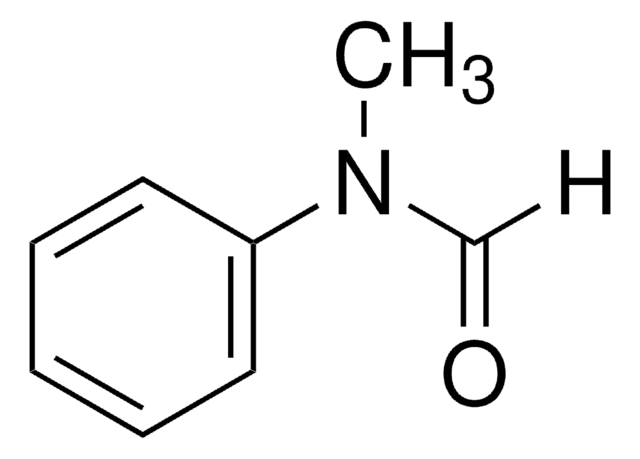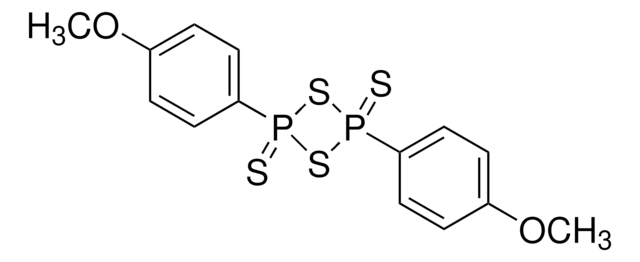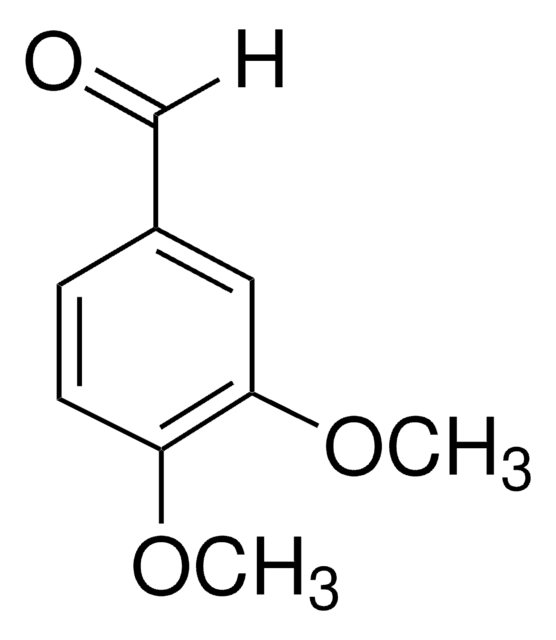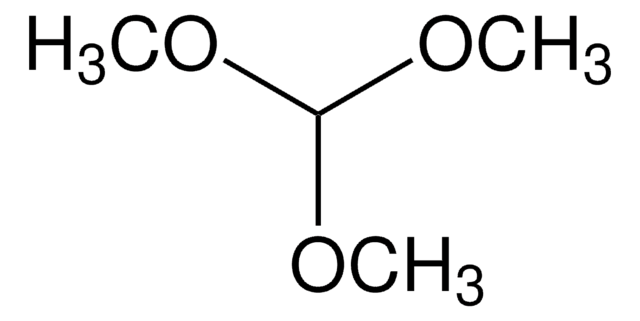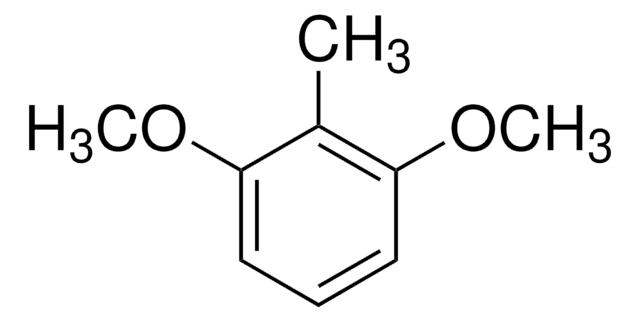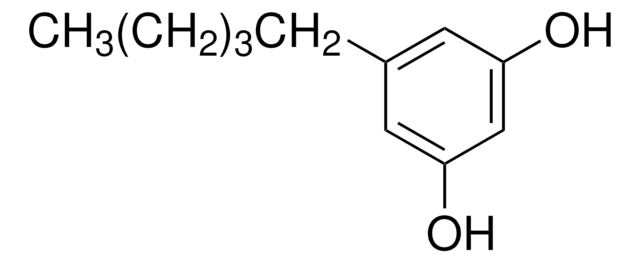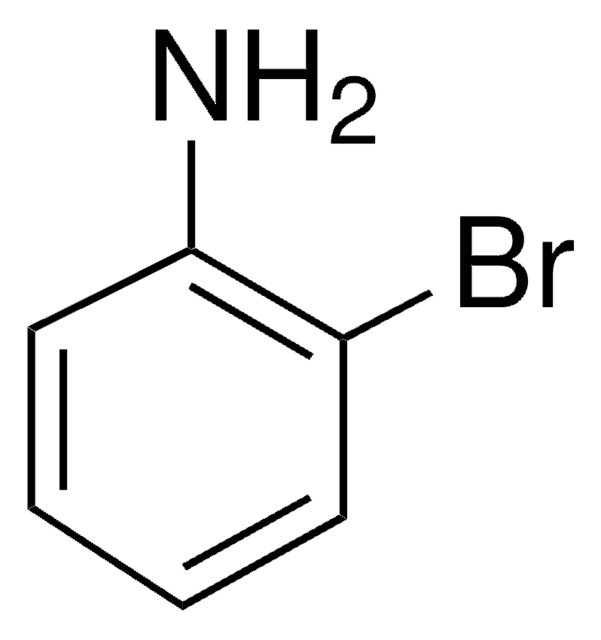All Photos(2)
About This Item
Linear Formula:
CH3C6H3(OCH3)2
CAS Number:
Molecular Weight:
152.19
EC Number:
MDL number:
UNSPSC Code:
12352100
PubChem Substance ID:
NACRES:
NA.22
Recommended Products
Quality Level
assay
98%
form
liquid
refractive index
n20/D 1.522 (lit.)
bp
218-220 °C/751 mmHg (lit.)
density
1.049 g/mL at 25 °C (lit.)
SMILES string
COc1ccc(OC)c(C)c1
InChI
1S/C9H12O2/c1-7-6-8(10-2)4-5-9(7)11-3/h4-6H,1-3H3
InChI key
IQISOVKPFBLQIQ-UHFFFAOYSA-N
General description
2,5-Dimethoxytoluene (1,4-dimethoxy-2-methyl benzene) is a methoxy methyl benzene derivative. It has been synthesized from 2-methylhydroquinone. It is one of the volatile constituents identified from beechwood creosote and Tuber brumale species. It is reported to be one of the thermochemolysis products in Delaware bay particles and dissolved organic matters.
Application
2,5-Dimethoxytoluene may be used as a reagent in the synthesis of 2,5-dimethoxy-4-methylbenzaldehyde-7-14C. Its IR spectrum has been used to establish the methyl group migration in the acid catalyzed rearrangement of 4-methoxy-4-methylcyclohexadienone.
signalword
Warning
hcodes
Hazard Classifications
Eye Irrit. 2 - Skin Irrit. 2 - STOT SE 3
target_organs
Respiratory system
Storage Class
10 - Combustible liquids
wgk_germany
WGK 3
flash_point_f
215.6 °F - closed cup
flash_point_c
102 °C - closed cup
ppe
Eyeshields, Gloves, type ABEK (EN14387) respirator filter
Choose from one of the most recent versions:
Already Own This Product?
Find documentation for the products that you have recently purchased in the Document Library.
Customers Also Viewed
Terrigenous dissolved organic matter along an estuarine gradient and its flux to the coastal ocean.
Mannino A and Harvey HR.
Organic Geochemistry, 31(12), 1611-1625 (2000)
Cyclohexadienyl cations. IV. Methoxy substituent effects in the dienone-phenol rearrangement.
Vitullo VP and Logue EA.
The Journal of Organic Chemistry, 37(21), 3339-3342 (1972)
Comparison of the fragrance constituents of Tuber aestivum and Tuber brumale gathered in Hungary.
Kiss M, et al.
Journal of Applied Botany and Food Quality, 84(1), 102-102 (2012)
Stereochemical aspects and metabolite formation in the in vivo metabolism of the psychotomimetic amine, 1-(2,5-dimethoxy-4-methylphenyl)-2-aminopropane.
S B Matin et al.
Journal of medicinal chemistry, 17(8), 877-882 (1974-08-01)
Antioxidant activity and characterization of volatile constituents of beechwood creosote.
Lee KG, et al.
Journal of the Science of Food and Agriculture, 85(9), 1580-1586 (2005)
Our team of scientists has experience in all areas of research including Life Science, Material Science, Chemical Synthesis, Chromatography, Analytical and many others.
Contact Technical Service
